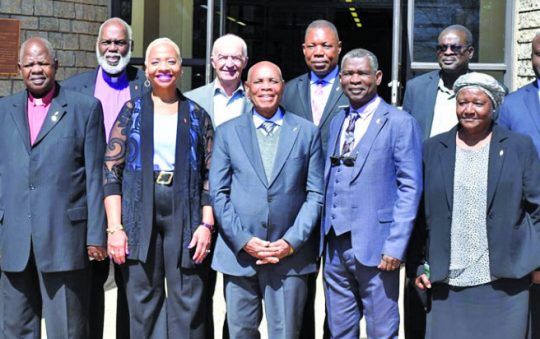
Second of two parts
The movie Django: Unchained caused- and movies on slavery since then continue to generate-mostly negative conversation and commentary, among Blacks. However, it’s mostly talk. No matter how Black people feel about these films, they’re not likely to take Hollywood to task for its distortion of history.
The demerits of slavery films, notwithstanding, Blacks’ tendency not to act, even when something is not in their best interest reflects, a) they have internalized the white majority’s values, without access to its benefits, b) they have do not have alternative values of their own. Therefore, Blacks are reluctant to challenge racism and white privilege because to do so, psychologically, is tantamount to challenging themselves.
Today’s column continues with excerpts from Dr. John Henrik Clarke’s seminal work, Slavery and the Slave Trade which provides a historical analysis of slavery from an unapologetically Black perspective. Slavery’s legacy affects everyone, but Black people’s lives most of all.
“African and Asian labor, resources, and energy helped Europe lay the basis for the modern scientific and technical world. The tyranny of technology, propaganda, forced religion and forced labor, all functioned together to assist in the European takeover of most of the world. Their greatest achievement was in essence, the conquest of the mind; they colonized religious literature and images to make them more favorable to themselves and the most disastrous of all their colonizations was the colonization of the image of God.
I would be happy to say that after slavery and its aftermath, we are out of this dilemma of self-identity and misguided direction. However, quite the contrary is true. We seem to be in the same dilemma now, more tragically and deeper than ever. This is why it is necessary to examine this period in history…..If the present and past is always an extension of the same thing, then the future cannot be successfully planned without an understanding of both.
Africa has always been the prize of nations that discovered its potential and possibilities. Africa has always had, and still has, things that other people want, cannot do without and don’t want to pay for. Most people who lust after Africa and its richness know more about Africa’s potential than many Africans themselves. That is why the European in the 15th and 16th centuries was willing to establish an honorable commodity trade with the people of Asia and set up a trade dealing with trafficking of human beings in Africa. The experimental objects coming out of the embryo would later become the European industrial revolution. Without the resources and the labor of African people this revolution would not have occurred.
It is my estimation that the British’ late entry into the slave trade gave the unfortunate business order and focus. The British no longer felt obligated to go to the Catholic church for permission to engage in expanding the lucrative business of the slave trade in Africa. They sailed up the river Gambia, marked up 10 miles on each side and arbitrarily called the area Gambia. Then they began the portioning of Africa, irrespective of previous borders or cultures which would not end until the Berlin Conference of 1884-1885, that created most of the artificial African-nation states of today.
Traditionally, all the great states of Africa’s golden ages were multi-ethnic and multicultural territorial states. The nation-states designed by the Europeans put Africans in a political strait-jacket and retarded the growth and imagination of African people.
At first, the Europeans had a favorable attitude towards the Africans. They spoke highly of African political institutions and their sophistication, and from their own records, they say that the Africans were civilized to the marrow of their bones. When they needed a rationale to start trafficking in cargo, they changed their minds and invented the African as a savage.
Slavery was established in North Africa before the West African slave trade. There, and in the Mediterranean area, the slave trade respected neither color nor nationality. The capture of white people in the Mediterranean area was extensive. After the Arabs lost their power in Spain and in the Iberian Peninsula, some Arabs enslaved Africans who had previously been the military arm of their staying power in the area. The first Africans brought to the New World did not come directly from the coast of West Africa; they came from Spain and the Iberian Peninsula.
The great drama and ordeal of slavery unfolded in the forts, castles and slave-holding stations along the coast of West Africa. Because of the gun and cooperation of some corrupt Africans, Europeans were now able to penetrate into the hinterlands for a new supply of African people to enslave.
The conditions in the dungeons and holding stations along the coast of West Africa were a hell beyond imagination. Slaves were assembled in these dungeons until buyers and ships arrived and the massive bastardization of African people by the forced violation of the African women began in these holding stations. They had no choice but to submit to the slave traders’ will and the African men had no means of protecting them.
This horrific condition would continue on the slave ships, on the plantations of the new world and, to a significant extent even after slavery was legally abolished. And it is by no means absent today.”
Larry Aubry can be contacted at [email protected]






